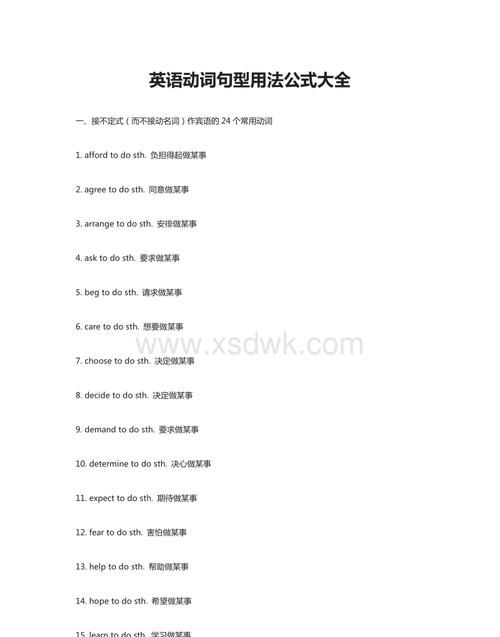本文目录
agree的短语搭配及其用法
一、agree 的搭配
1、agree with 同意,和…意见一致
2、agree on 对…取得一致意见
3、agree in 在…方面意见一致;在…相同
4、agree about 对…有相同的看法;就…取得一致意见
5、agree upon 对…取得一致意见
6、agree to do something 同意做某事
7、agree to disagree 消除分歧,求同存异;同意各自保留不同意见
8、agree up sth 在某一点上取得一致意见
二、agree的用法:
1、agree用作及物动词,其后可接名词、代词、动词不定式或that从句作宾语。用作不及物动词,其后常接about, in, on〔upon〕, to, with等介词。
(1)agree on〔upon〕后的宾语主要是date, price, position, cease-fire, terms等。
(2)agree to后的宾语主要是arrangement, conditions, plan, proposals, suggestions, terms等。
(3)agree with作“适合”解时,主语多为表示气候、环境、食物等方面的名词,宾语多为人。
2、agree后不直接接动名词作宾语,如需接动名词时则要加介词。但接that从句时其前不加介词。agree可用于被动结构。
3、agree接不同介词表示不同意思:agree with指“同意”,后面接“人”或者“意见”。 agree to指“同意于”,后面接意为“提议”,“办法”,“计划”等的词。agree on/upon指“(双方)决定”。
4、agreed指“互相同意的”,作为不及物动词的过去分词时,可作形容词,后可接that从句。
5、agree也可作为及物动词的过去分词。agreed to do表示“在别人建议下同意做某事”,而agreed in doing表示“彼此间相互同意做某事”;

扩展资料
agree 读法 英 [ə'griː] 美 [ə'ɡri]
1、vt. 同意,赞成;承认;约定,商定
2、vi. 同意,意见一致;约定,商定
例句:
1、I agree with you that the open system is by far the best.
我同意你的观点,开放的系统是目前最好的。
2、He agreed to pay me for the drawings.
她答应为这些画付给我钱。
词义辨析:
conform, accord, coincide, agree这组词都有“符合、一致”的意思,其区别是:
1、conform 强调在形状、性格以及主要特点等方面的相似或一致。
2、accord 着重指性格、精神、语气或质量等方面的完全一致。
3、coincide 多用于指观点、判断、愿望、利益或兴趣的一致或相符。偶尔用于人,强调意见或观点完全相同。
4、agree 侧重指经过比较后的所有主要部分均和谐一致,无冲突和矛盾。
Agree用法
agree用法四个如下:
agree 同意,赞同,相符,一致,协调
agree with 同意...的意见; 与...一致; 对...适合
agree to 同意某事...
agree on 对...达成协议; 对...取得一致意见

Agree with的用法
1. agree with
①表示同意某人或某人的意见、想法、分析、解释等 (即持同一观点):
I don’t agree with you. 我不同意你的意见。
They agreed with this idea. 他们同意这个想法。
I agree with what you say. 我同意你说的。
②表示“ (食物、天气、工作等)对…适宜”:
The weather doesnot agree with me. 这种天气对我不适宜。
Hard work does notagree with him. 艰苦的工作对他不适宜。
③表示“与…一致”:
A verb must agree with its subjectin person and number. 动词必须和它的主语在人称和数方面保持一致。
What he does does not agree with what he says. 他言行不一致。
2. agree to
①主要用来表示一方提出一项建议、安排、计划等,另一方同意协作:
We agreed to their arrangement. 我们同意了他们的安排。
She agreed to marriage. 她同意结婚。
有时 agree to 也可用来表示“答应”一件自己不愿做的事:
I was forced to agree to it, but at heart I didn’t quite agreewith it. 我被迫答应,但内心并不完全同意。
②后接 suggestion, plan, proposal 等名词时,与 accept 同义:
Do you think he will agree to (=accept) my suggestion? 你认为他会同意 (接受)我的建议吗?
③其后既可接动词原形 (此时to是不定式符号),也可接动名词 (一般有逻辑主语,此时 to是介词):
He agreed to go with us. 他同意同我们去。
I never agreed to Mary marrying him. 我从来没同意玛丽嫁给他。
3. agree on [upon]
①主要指双方通过协商而取得一致意见或达成协议:
We agreed on the price. 我们就价格达成了一致意见。
Both sides agreedon these terms. 双方都同意这些条件。
②后接动名词 (=agree to do sth):
He agreed on lending (=to lend) us some money. 他同意借给我们一些钱。
Mary agreed oncoming [to come] on Monday. 玛丽同意星期一来。
4. 两点用法说明:
(1) 后接表示人的名词或代词时,一般只用 agree with。
(2) agree 不能接不定式的复合结构,所以汉语的“同意某人做某事”,不能直译为 agree sb to do sth, 而应根据情况改用其它结构:
他们同意我去。
正:They agreed to let me go.
正:They agreed to my going.
误:They agreed me to go.

admire的用法和搭配有哪些
一、agree的用法
1、agree既可用作及物动词,也可用作不及物动词。
用作及物动词时,其后可接名词、代词、动词不定式或that从句作宾语。用作不及物动词时,其后常接about, in, on〔upon〕, to, with等介词。agree on〔upon〕后的宾语主要是date, price, position, cease-fire, terms等。agree to后的宾语主要是arrangement, conditions, plan, proposals, suggestions, terms等。agree with作“适合”解时,主语多为表示气候、环境、食物等方面的名词,宾语多为人。
2、agree后不直接接动名词作宾语,如需接动名词时则要加介词。但接that从句时其前不加介词。agree可用于被动结构。
二、agree的用法之固定搭配:
1、agree with,含义是“同意,和…意见一致”。
例句: Do you agree with the list?
您是否同意这个名单?
2、agree on,含义是“对…取得一致意见”。
例句: The good news is, we agree on some of the big things.
好消息是,我们在部分重大事项上达成了一致。
3、agree in,含义是“在…方面意见一致;在…相同”。
例句: Verb and subject must agree in person.
动词与主语人称必须一致。
4、agree about,含义是“对…有相同的看法;就…取得一致意见”。
例句: Most economists agree about all of this.
大部分经济学家都认同这些情况。
5、agree upon,含义是“对…取得一致意见”。
例句: You don’t have to agree upon everything.
你不必在每件事情上取得别人的同意。

扩展资料:
双语例句
What do you agree or not agree?
你怎么同意还是不同意吗?。
I agree with you on that.
在那个问题上我和你一致。
And whether you agree with them, or not.
你是否同意他们的想法,还是没有
以上就是关于agree用法归纳 ,agree的短语搭配及其用法的全部内容,以及agree用法归纳 的相关内容,希望能够帮到您。

